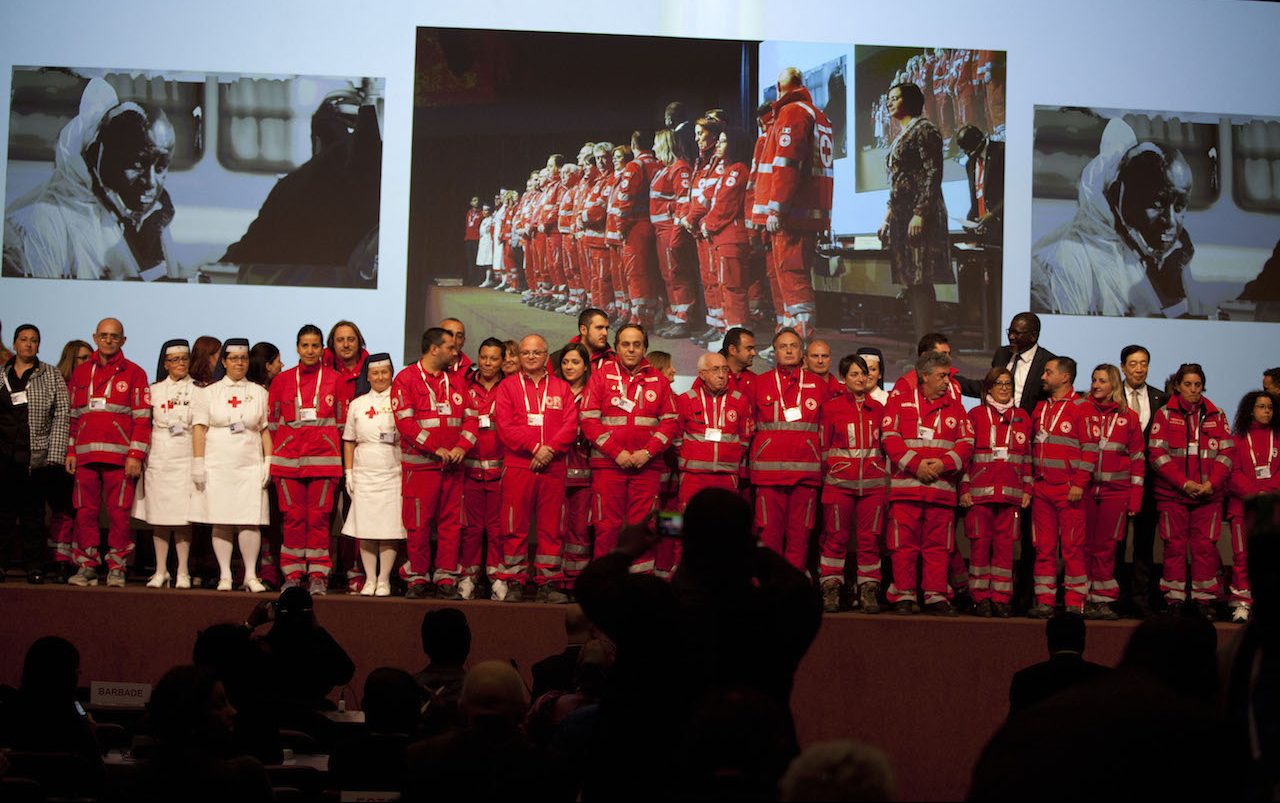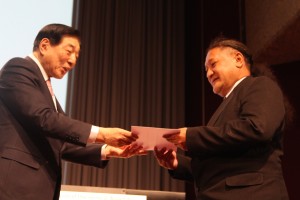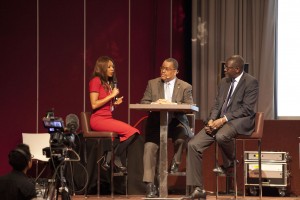When Manneh’s team was called to prepare a female body for burial, she was the first to enter the home, disinfect the body and the area, and prepare the body so her male colleagues could transport it to its final resting place. “We have a saying on our team that we provide safety for the living and dignity for the dead,” said Manneh, who came to the conference to accept an award on behalf of the more than 500 burial team members in Sierra Leone. “Including women on the burial teams allowed us to provide dignity to everyone who passed during Ebola.”
A global message
At the same time, the conference was also energized by other global meetings such as the COP21 climate talks in Paris, where pressure from thousands of environmental, development and humanitarian groups (including the Movement) led world leaders to hammer out a climate accord that set specific targets for stabilizing global temperatures, reducing emissions and investing in mitigating the consequences of climate change.
In Geneva, meanwhile, the IFRC launched the One Billion Coalition for Resilience, aimed at creating worldwide, locally based momentum for risk reduction and other measures to make disaster-prone communities less vulnerable to shocks.
Another international meeting, set for Istanbul, Turkey in May 2016, was also on the agenda. Organized by the United Nations, the World Humanitarian Summit will bring together international aid agencies, non-governmental organizations and local humanitarian groups to discuss how to improve the effectiveness of humanitarian assistance.
Based on comments gathered from community leaders, volunteers and front-line aid workers during five ‘hub’ events in each key region, as well as the Voices to Action campaign (see below), the Movement also crafted and approved a statement to the World Humanitarian Summit that called for “clear commitments on respect for human dignity and people’s assistance and protection in disaster, armed conflict and other emergencies”.
Aid workers must not be prevented from reaching those in need, the statement continued. This proximity is necessary in order to make sure that people affected by crisis play a leading role in their own recovery. “Participation is an important part of human dignity,” the statement adds. “Humanitarian response should actively include affected people in the relief of their own suffering and the reduction of their risk.”
For that reason, proximity and trust are essential. “To work together well, humanitarian agencies must be close to the communities who need them and work in cooperation with the relevant authorities.”
The statement also called on the summit to place more priority on funding locally based humanitarian action. “The international system still places an overwhelming emphasis on international actors, leaving local organizations insufficient influence over operational decision-making and humanitarian policy.
“This imbalance must be changed,” the statement continues. “More sustained investment in national response systems and basic services will deliver stronger partnerships between local and international actors.”
While many humanitarian organizations (including the ICRC) are operating with record budgets, due to the enormity of needs, the continuous and growing scale of humanitarian needs globally has led to calls for change in the way humanitarian and development aid is delivered.
Some critics of the humanitarian sector argue that the aid system is broken and needs a complete overhaul, while others suggest it is simply underfunded and that the basic structure of the international aid system is essentially effective. Consultations leading up to the summit have brought several key themes to the fore, most notably, strengthening the capacity of national governments and local communities to respond to challenges rather than continually placing the lion’s share of resources in the hands of international humanitarian organizations.
Still, the statement concludes, support for local action does not need to come at the expense of international humanitarian aid. Rather, the Movement’s statement calls on the summit to “affirm the complementarity of local, national and international action”.
 Red Cross Red Crescent magazine
Red Cross Red Crescent magazine 







